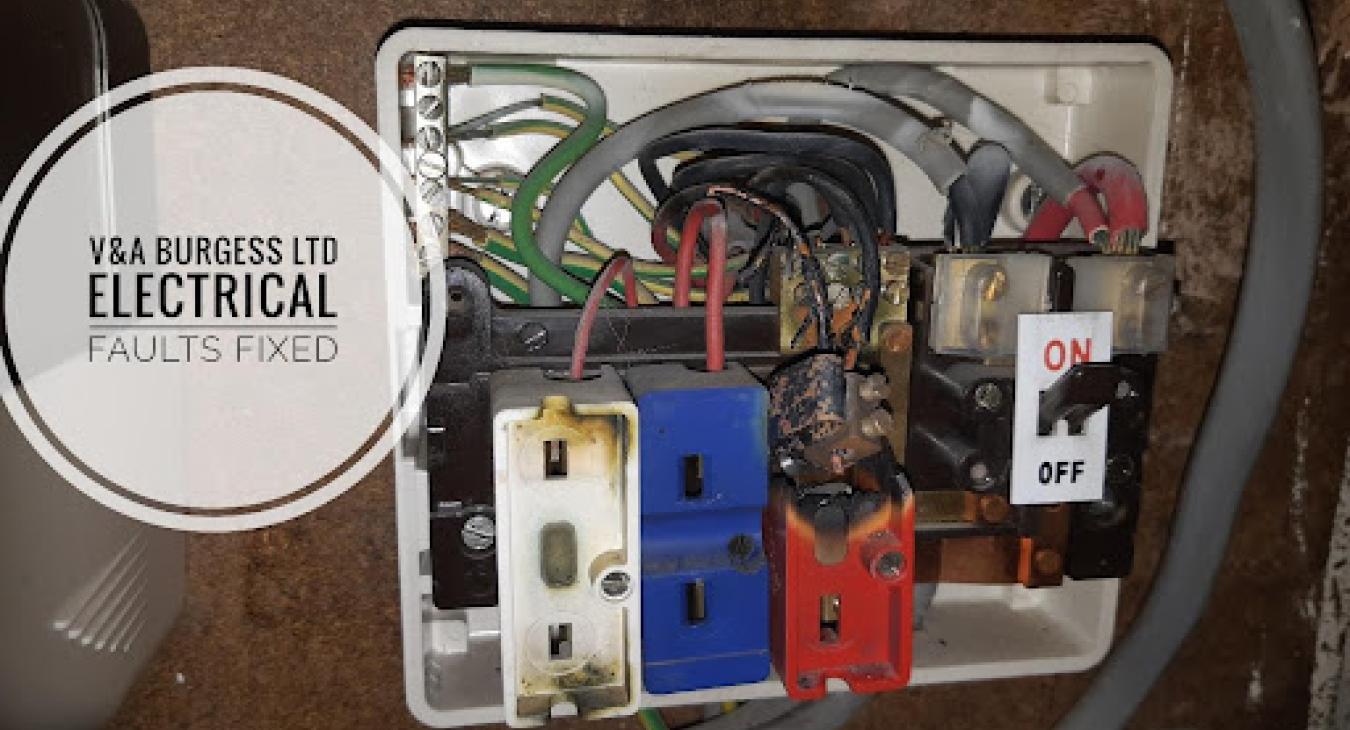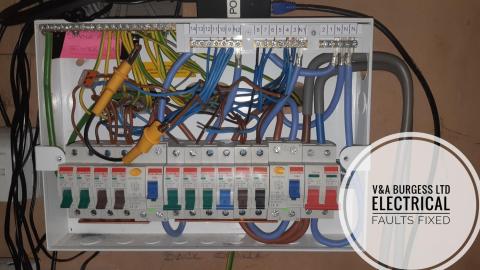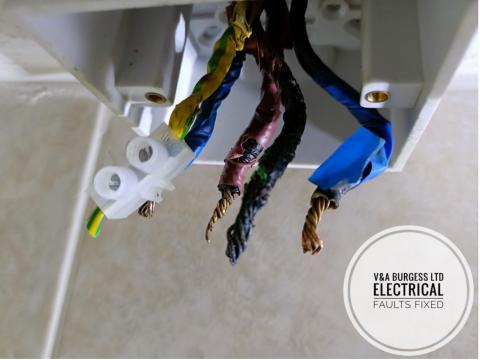
There are many questions surrounding electrical systems and installations that can go unanswered but we are here to try to answer them all! If you want to know “HOW LONG DOES A FUSE BOX LAST?” then keep reading...
There are many other blog and articles on our site covering all things electrical related to try and answer questions for our customers, please have a look around and give us a shout on the contact form if you need anything.
What about old Fuse Wire Fuse Boxes?
These Fuse boxes were installed up until the early 1980s. The idea behind the BS3036 rewire-able fuse system was that if a fuse wire blew, the fault could be investigated, rectified then the fuse wire in the carrier replaced. These were a very crude form of overcurrent protective device, designed to protect the wiring in electrical systems from overload, fire and to prevent the occupants of the property from harm. Many of these fuse boxes are still in use today but are no longer installed as they generally do not comply with BS7671 wiring regulations these days.
There were a number of issues with these old-style rewireable fuse boxes. Frustrated by continual fuse wire blowing, frustrated homeowners would often replace the fuse wire with thicker wire, copper wire or even other dangerous items. This would lead to cable damage, fire risk and other electrical problems within the home. Rather than call an electrician to investigate the issue, this incredibly dangerous ‘hack’ is occasionally employed by some. We occasionally come across this situation on electrical inspections and find that the fuse carrier is covered in black soot from continual fuse blowing. ☹ These older boxes generally offered no electric shock protection to the homeowners or users of the electrical installation and as such, more modern consumer units with RCD protection are favoured in place of these older style boxes.
Many of these boxes are now well in excess of 40 years old and whilst some will continue to keep the power on, they should be replaced for more modern units with all the up-to-date safety features that a new unit can bring. If a replacement is not in the budget right now then as a BARE MINIMUM, an electrician should be contacted to carry out an electrical inspection, check the connections within the fuse box and test all circuits within the electrical installation. Don’t forget, if you have one of these fuse boxes installed then your wiring is also, as a minimum, the same age if not older.
How long does a consumer unit last?
A consumer unit contains ‘trip switches’ rather than fuses or rewire-able fuses. These switches are indicative of something a little more modern and can offer more protection to the electrical installation and its users than the older fuse boxes. Along with this upgrade in technology comes more moving parts, more electrical components, and an increased potential for failure! ☹ That’s right. These devices are more likely to be affected by damp, wear and tear and internal metal corrosion than the good old rewireable fuse wire fuse box. That doesn’t mean we shouldn’t upgrade to a newer consumer unit but it does mean that these consumer units will potentially have a shorter lifespan than their older fuse box counterparts. Not upgrading is similar to driving around in a car with no air bags, seat belts or anti-lock brakes because “there is less to go wrong,” the concept is silly. If one was to crash, I would rather do so in the vehicle with all the up-to-date safety features than the old rusty deathtrap 😊
A consumer unit can last for many years, several decades in fact. The environment is likely to have an effect on a consumer unit. For example, a consumer unit in a damp basement will fail long before one situated in a dry property. We have experienced various switchgear failure in both mild and spectacular form when these are installed in damp basements. Combine this with the massive inconvenience of navigating the stairs down to the consumer unit in the dark and you have a real risky situation when trying to turn it back on.
How often should I have my consumer unit changed?
The likelihood is, that you will not have to replace your consumer unit for many years if you have just had a new one installed. Updating the consumer unit components is often best as the safety wiring regulations change. A consumer unit will, on average, last far longer than your boiler and represents far better value when you consider the lack of annual service, replacement parts and lifespan. Yet, people still regularly fail to see the value in replacing it. The best advice I could give to a homeowner is to have an electrical inspection carried out by a trusted electrician. I always tell my customers the truth, give the best advice possible and tell them if they need a rewire it is NOT because I want their money. I really do not like rewiring homes and will try to avoid it, in fact, I have at least two colleagues that I pass that kind of work to instead. 😊 A good thorough electrical inspection will not only give you peace of mind about the condition of your electrical system but will also highlight anything that maybe does need your attention. A good trusted electrician will be able to tell you what needs updating, if there are any hidden defects in your wiring and what safety upgrades are recommended. If your consumer unit is not too old then it may be possible to replace internal components and bring the wiring up to date without an issue. There are some manufacturers that still manufacture parts to fit older consumer units so it is sometimes possible to simply replace components.
You should probably have your consumer unit changed every 15 to 20 years and certainly safety upgrades carried out within that time also including an electrical inspection every 10 years. Your electrician will check that various trip switches will still trip when there is a fault, that the earthing is good, that there are no breaks on circuits and much more. Consumer units can and will last longer than this if installed in professionally, in accordance with manufacturer’s instructions and in an environment that is unlikely to cause premature failure. If you are worried about “HOW LONG DOES A FUSE BOX LAST?”, the age of your fuse box or other concerns with your electrical system then feel free to get in touch using our contact form. We will do our best to help you even if you are not in our local area. For those of you with properties between Liverpool and Wigan, we are able to visit in person to carry out electrical inspections for you. 😊
📧 Contact us.











